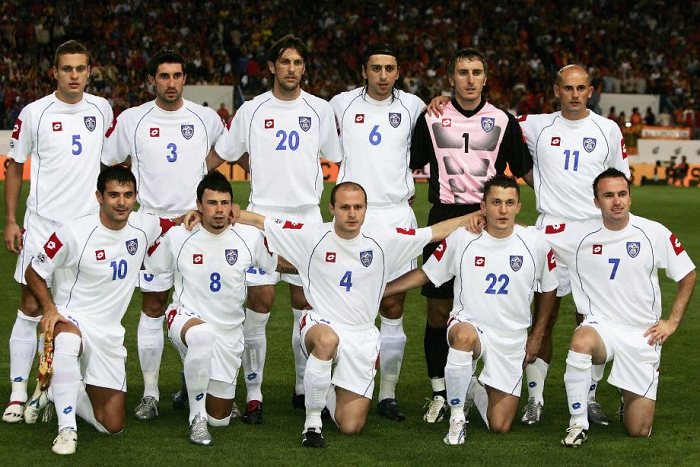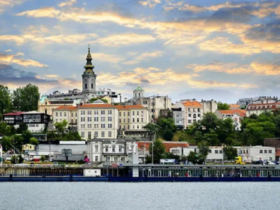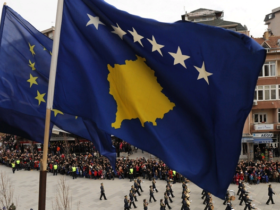Yugoslavia is falling apart, Serbia and Montenegro are forced to form their own separate championship, the best students are forced to go to foreign clubs.
Not the most comfortable time for sports success, but as the poet said: «times are not chosen, they live and die in them.» This is appropriate to describe Yugoslavia as a whole, but in relation to its volleyball, the verb «die» should be replaced with «win». Specifically, volleyball Yugoslavia is third at the 1995 European Championship, at the 1996 Olympics, the second at the 1997 European Championship, the third at the 1998 World Cup and the 1999 European Championship. And the last Olympic champion of the 20th century, after winning in Sydney 2000 (pictured).
During these years, veterans Petrovich, Tanaskovich, who did not win anything in the Yugoslav national team, were added Batez, Jokanovic, Skorich from Red Star, which finally became a major league team, as well as Gerich, Mester, junior Nikola Grbic (both » Voyvodin). There is only one Montenegrin in the team — this is Igor Vushurovich, from the same Vojvodina, which allows us to establish an amazing mutual understanding. In fact, few people know them, as well as the club coach Milorad Kiyats, the coach of the national team Zoran Gajic, who, through Vojvodina, came to the main team of Yugoslavia, Veselin Vukovic. They, like the current mentor of the Russian women’s team Zoran Terzic, were not even professional volleyball players, having chosen a coaching career from an early age.
Not playing in international starts either as a national team or as clubs in European tournaments, Yugoslavia at least did not regress in basketball, handball, water polo and soared up in volleyball, first in men’s, and then in part of the women’s team.
By the way, talking about women’s volleyball, you can even more admire the progress of Serbia, since during the Yugoslav times there were no successes at all. Third place at Europe 1951, where six teams participated, and 16 at the 1978 World Cup in the USSR. After the collapse of Yugoslavia, Croatia sharply intensified, where a stream of volleyball players from the former USSR (Kirillova, Liechtenstein, Sidorenko, Chebukina) poured in, and Serbia made its way to the European Championship for the first time only in 2003.







Оставить коммент.